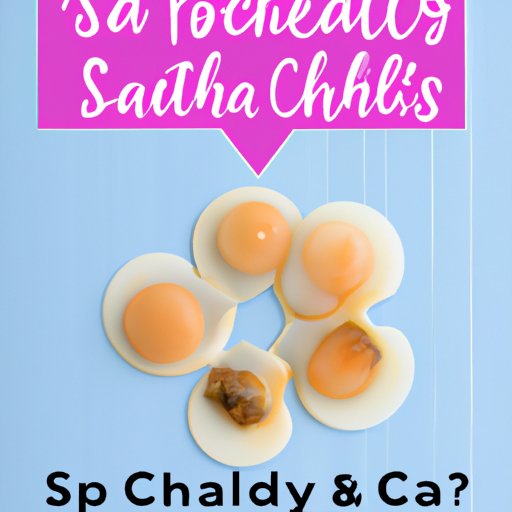
Introduction
When it comes to pregnancy, many women are cautious about what they eat and drink. They want to make sure they are providing the best nourishment for the growth and development of their baby. One food that often raises questions is scallops. Are they safe to eat during pregnancy? In this article, we will explore the benefits and risks of eating scallops while pregnant, provide alternative seafood options, and offer tips on how to incorporate scallops into a healthy pregnancy diet.
Benefits of Eating Scallops During Pregnancy
Scallops are a good source of protein and omega-3 fatty acids. Protein helps to build and repair tissues in both the mother and developing baby. Omega-3 fatty acids play an important role in brain development and health. Studies have shown that children born to women who consumed more omega-3s during pregnancy had higher IQs and better cognitive and behavioral outcomes.
Risks and Precautions of Eating Scallops During Pregnancy
The biggest concern when it comes to eating scallops during pregnancy is the risk of bacterial contamination and toxin exposure. Scallops can carry harmful bacteria such as E. coli and Vibrio. They can also accumulate toxins such as mercury, which can be harmful to the developing baby’s nervous system.
To mitigate these risks, it’s important to properly prepare and cook scallops. Make sure to purchase scallops from a reputable source. Look for scallops that are fresh, smell sweet, and have a firm texture. Avoid scallops that are slimy or have a strong fishy odor.
When preparing scallops, rinse them in cold water and pat them dry with a paper towel. Cook them to an internal temperature of 145°F (63°C) to kill any harmful bacteria. Scallops should be cooked until they are opaque and slightly firm to the touch. Avoid eating raw or undercooked scallops.
Alternative Seafood Options for Pregnant Women
If you don’t want to eat scallops while pregnant, there are many alternative seafood options that are safe and nutritious. Salmon, sardines, trout, and shrimp are all good sources of protein and omega-3 fatty acids. These seafood options also have low mercury levels.
Salmon is a particularly good seafood option for pregnant women because it has high levels of DHA, an omega-3 fatty acid that is important for the development of the baby’s nervous system. Try baking salmon with lemon and herbs or grilling it with a honey mustard glaze.
How to Incorporate Scallops into a Healthy Pregnancy Diet
If you decide to incorporate scallops into your pregnancy diet, there are many delicious and healthy ways to prepare them. Try grilling scallops with lemon and garlic or pan-searing them with a citrus and herb sauce. You can also add scallops to pasta dishes or salads for a protein boost.
The Experts’ Opinions on Eating Scallops While Pregnant
According to the American Pregnancy Association, seafood can be a healthy part of a pregnancy diet, including scallops. However, pregnant women should limit their intake of predatory fish such as shark, swordfish, king mackerel, and tilefish due to their high mercury levels.
Registered Dietitian and Nutritionist, Keri Glassman, states that “pregnant women should feel safe eating scallops as long as they are cooked properly and consumed in moderation.”
Personal Experiences of Eating Scallops During Pregnancy
Many women have eaten scallops during pregnancy and have had positive experiences. They have enjoyed the taste and texture of scallops and have appreciated their nutritional benefits.
However, some women have had negative experiences with scallops during pregnancy. They have experienced nausea or digestive issues after eating scallops. It’s important to listen to your body and if scallops don’t agree with you, there are plenty of other safe seafood options to choose from.
Conclusion
In conclusion, scallops can be a safe and nutritious part of a pregnancy diet when they are properly prepared and cooked. They are a good source of protein and omega-3 fatty acids, which are important for fetal growth and development. However, it’s important to be aware of the risks and precautions associated with eating scallops and to listen to your body’s reaction. If scallops don’t agree with you, there are many alternative seafood options to choose from that are safe and healthy for you and your developing baby.




